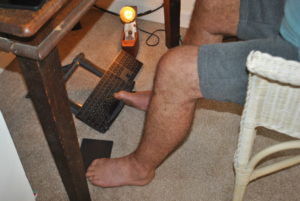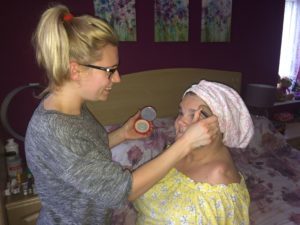 Identifying Unmet Needs under the Care Act 2014
Identifying Unmet Needs under the Care Act 2014
The Care Act 2014 helps to improve people's independence and wellbeing.
In order to identify all the right services and support needs for individual thalidomide survivors it is essential to undertake the assessment with an informed and sensitive approach.
Understanding a thalidomide survivor's point of view
People born with thalidomide damage have been in the public eye throughout their lives. As children they have been subjected to many investigations and assessments and were objects of interest to medical professionals and social workers. There is an understandable commonly held mistrust of professionals.
As a result, thalidomide survivors have worked hard to disprove the bleak prognoses often given at birth. They can be fiercely independent. They have achieved a level of independence that was not expected at the time and most may not even recognise that their way of day-to-day living would make them eligible for support, as it is so typical and habitual for them.
Using sensitivity to establish exactly how daily tasks are undertaken
 Therefore, when undertaking an assessment, it is important to understand how a task is completed. Do not just accept at face value if someone says they are able to complete it.
Therefore, when undertaking an assessment, it is important to understand how a task is completed. Do not just accept at face value if someone says they are able to complete it.
Thalidomide survivors may have unique ways to complete tasks. For example those with upper limb damage often use their feet, including making a hot drink using their feet.
Sensitive questioning skills will enable you to identify how tasks are completed and any risks this may involve. This is particularly important with personal care and toilet routines, which some beneficiaries may feel uncomfortable to discuss.
It's important to recognise that admitting difficulty with a task, may equate to feeling like hard-won independence is being lost. Please be sensitive to this during your assessment.
This is particularly the case as all thalidomide survivors are now aged between 57 and 63 and are having to come to terms with ageing. Evidence shows that the impact of living with thalidomide damage and using their bodies in ways for which they were never intended (using feet instead of hands, living with a very short reach etc) means that thalidomide survivors are experiencing the challenges of ageing earlier than most non thalidomide-affected people.
Consider the effects on wellbeing in addition to physical health and abilities
It is important to consider holistic support. Whilst tasks such as personal care or support to take medication may be obvious, it is often the needs that affect quality of life such as accessing the community or maintaining friendships that have the most impact on wellbeing. Thalidomide survivors experience high levels of social isolation and as a result experience higher levels of anxiety and depression than for an equivalent cohort in the general population. However, it can be harder to identify these unmet needs, especially if the beneficiary has been struggling along without any care and support and has previously been unable to participate as they would want to and has become accustomed to social isolation.
Determining support needs

How to plan support which gives beneficiaries flexibility, choice and control
